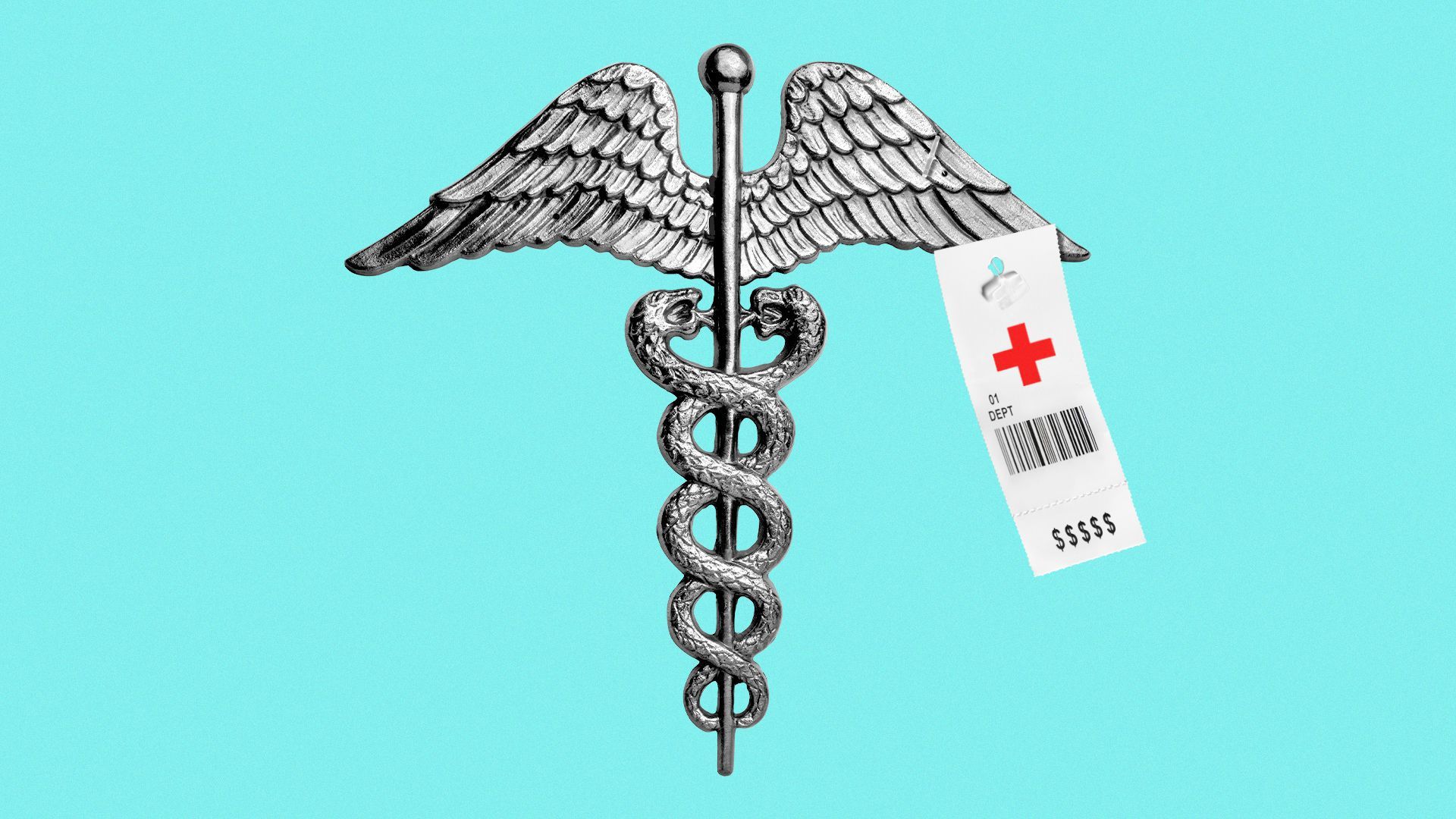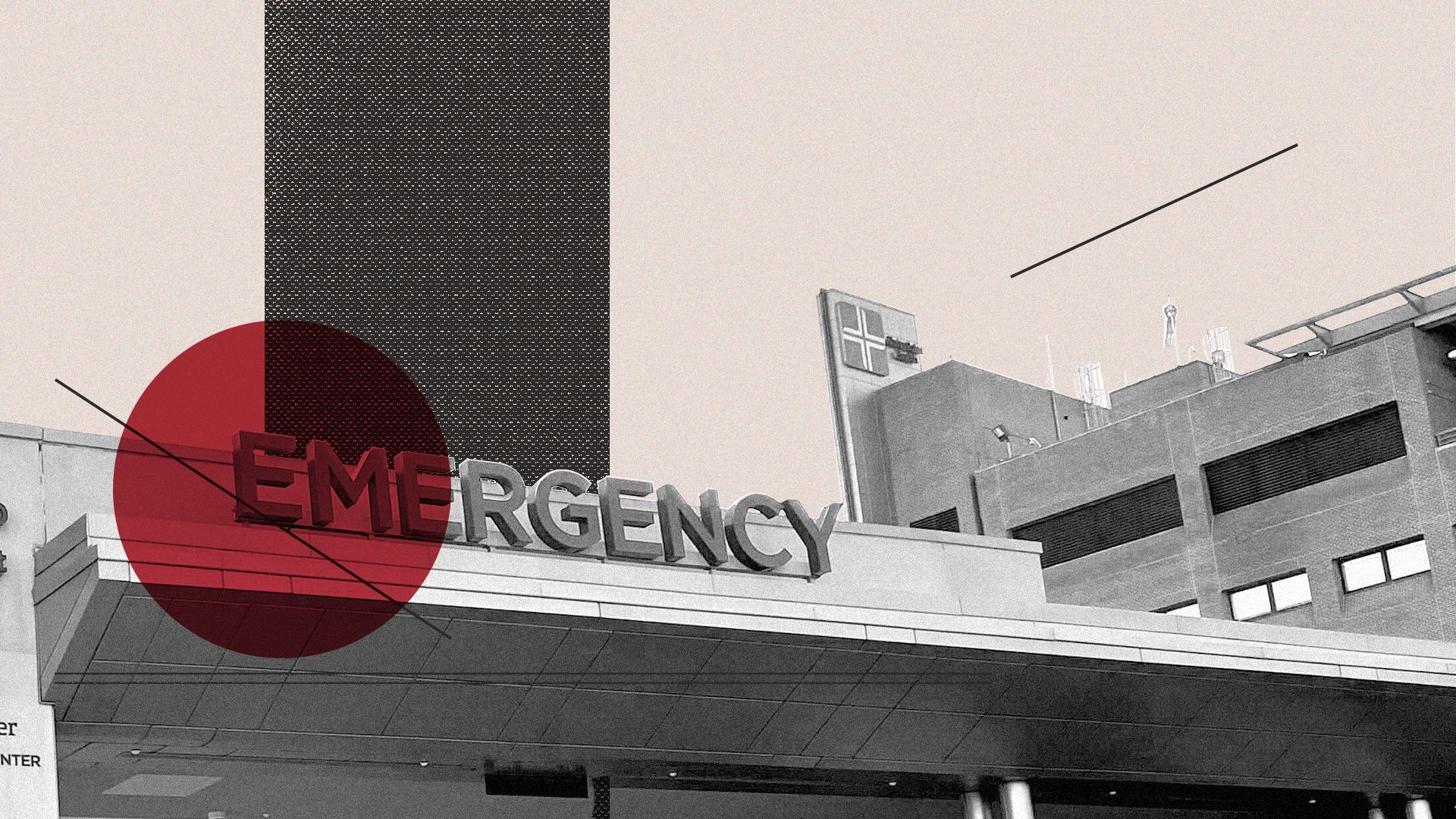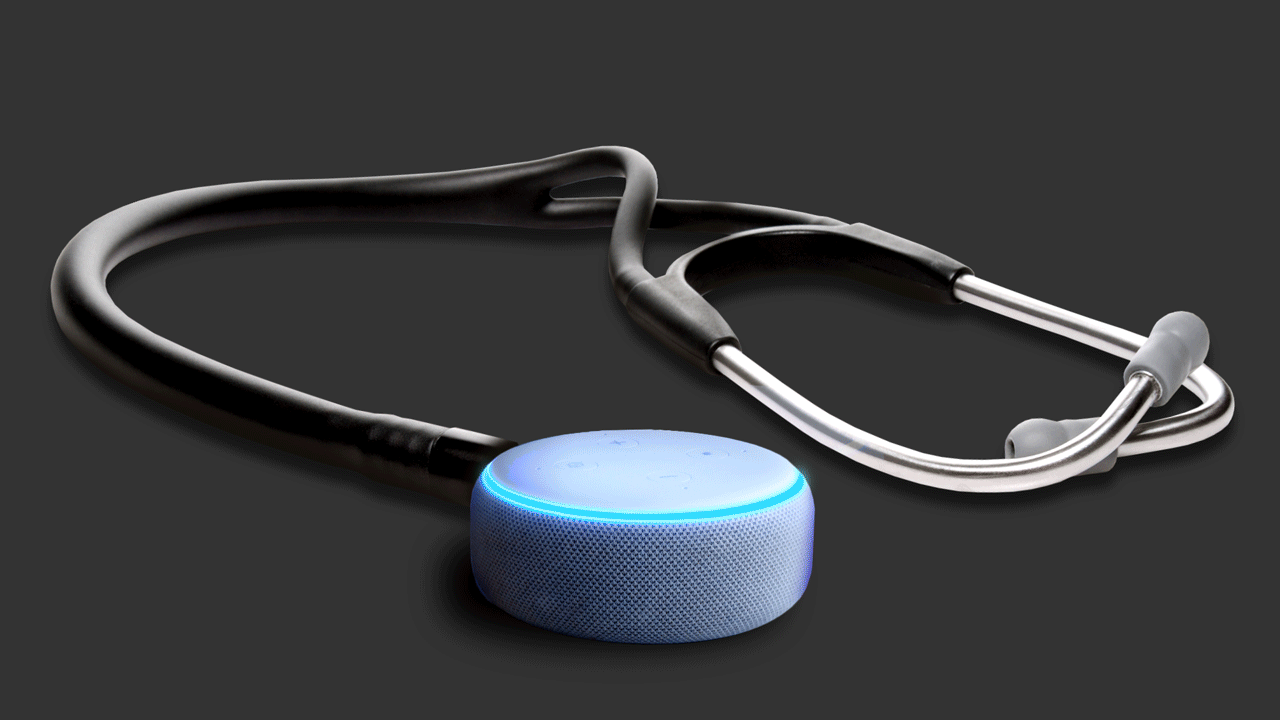| |
| |
| |
| Presented By Johnson & Johnson MedTech |
| |
| Axios Vitals |
| By Tina Reed · Oct 03, 2022 |
| 👋 Welcome to the first week of October, Vitals readers. Today's newsletter is 952 words or a 3½-minute read. |
| |
| |
| 1 big thing: New ALS treatment sparks yet another drug pricing debate |
 |
|
| Illustration: Natalie Peeples/Axios |
| |
| The FDA's expedited approval of a new ALS treatment priced at $158,000 a year, has touched off another debate over balancing regulation with patient access, Axios' Caitlin Owens writes. Why it matters: ALS, or Lou Gehrig's disease, is a dreaded neurological condition whose victims usually die within three years of the onset of symptoms. But there's limited evidence the newly approved drug works, or that its price is justified. Driving the news: The FDA on Thursday announced the approval of Relyvrio, an experimental drug combination from Amylyx Pharmaceuticals. It's the first ALS drug to win approval in five years and only the third in the agency's history. - The approval was granted without the clinical trial evidence the agency usually requires. The FDA originally recommended Amylyx apply for approval after the Phase 3 trial was completed in 2024, but backed off after intense campaigning by patient advocacy groups, per the NYT.
- "Given the serious and life-threatening nature of ALS and the substantial unmet need, this level of uncertainty is acceptable in this instance and consideration of these results in the context of regulatory flexibility is appropriate," the FDA wrote in a benefit-risk assessment.
- Amylyx has said the list price of Relyvrio will be $158,000 a year.
Between the lines: Advocates and experts quickly criticized the price as excessive. An analysis by the Institute for Clinical and Economic Review had previously said that the drug would be cost-effective if it was priced between $9,100 and $30,600 per year. The big picture: The entire episode recalls last year's controversial FDA approval of Aduhelm, an Alzheimer's treatment that also had limited evidence that it worked. Go deeper. |
    |
| |
| |
| 2. Hospitals' ER boarding problem |
 |
|
| Photo illustration: Brendan Lynch/Axios. Photo: Linh Ta |
| |
| Patients admitted in hospital emergency departments are likelier to wait longer than the recommended four-hour waiting period for an inpatient bed, according to a research letter in JAMA Network Open. Why it matters: Many patients are "boarded," meaning admitted but left to wait — often in hallways — for a bed. - That's a safety risk, per the Joint Commission, with the prospect for increased medical errors, compromised patient privacy and more deaths.
Zoom in: The research led by Yale University School of Medicine, examined data from the electronic health records company Epic between from January 2020 to December 2021 and identified an association between occupancy above the 85% threshold and boarding times. - In comparison, hospitals with occupancy of 70% or lower had median boarding times of less than three hours.
Yes, but: The study covered a period during which hospitals were being strained by the pandemic. Still, ED boarding increased even when hospital occupancy didn't surge. - Future research, the authors said, should incorporate variations in staffing and the burden from local outbreaks.
The big picture: This is part of a really complex problem that ripples throughout the health system blamed, in part, on staffing shortages in hospitals and the nursing facilities where patients who need ongoing care can be discharged. It's an argument that's being used for enhanced funding. - But there's also a more insidious problem at play, Yale's Arjun Venkatesh, a co-author of this study argued in Health Affairs earlier this year.
- "The financial benefits of ED boarding exceed the cost; by holding admitted patients in the ED, hospitals can continue to bring in and dedicate beds to elective admissions," he wrote in the piece with Harvard Medical School associate professor Scott Weiner.
Our thought bubble: A friend recently was boarded for nearly 24 hours in an emergency department, much of the time in a hallway. Trust me, it doesn't sound like an experience anyone would want to repeat. |
    |
| |
| |
| 3. Researchers study use of tech to prevent suicide |
 |
|
| Illustration: Annelise Capossela/Axios |
| |
| The same consumer tech that can be used to track our sleep patterns, locations and social media use may someday help flag when a person is in mental distress and needs help, the New York Times reports. Why it matters: Right now, mental health professionals rely on scientifically-validated questionnaires to measure and monitor mental health. How it would work: The idea is that algorithms can mine data such as when a patient is getting poor sleep, not leaving their house or showing a lot of sudden movement, indicating agitation. The algorithm could prompt a clinician to call and check in, the Times wrote. Yes, but: Mining data like this raises huge privacy flags for vulnerable patients. - Advocates also question the accuracy of such algorithms as well as patients' willingness to participate in the use of such tech.
The bottom line: New tools are desperately needed, Matthew Nock, a Harvard psychologist and suicide researcher studying the tools told the Times. - "The suicide rate now is the same it was literally 100 years ago," Nock said, per the Times. "So just if we're being honest, we're not getting better."
If you or someone you know may be considering suicide, contact the National Suicide Prevention Lifeline at 988 (En Español: 1-888-628-9454; Deaf and Hard of Hearing: dial 711 then 1-800-273-8255) or the Crisis Text Line by texting HOME to 741741. |
    |
| |
| |
| A message from Johnson & Johnson MedTech |
| Innovating medtech for tomorrow |
| |
 |
| |
| Johnson & Johnson MedTech is innovating to meet the challenges of today and forge the frontier of health tomorrow. Here's how: By leveraging our global infrastructure, research, cross-sector expertise, medical innovation network and trusted partnerships to better equip HCPs. Explore our impact. |
| |
| |
| 4. Number du jour: 1,200+ |
| Drugmakers raised the list prices of more than 1,200 treatments above the 8.5% rate of inflation from July 2021 to July 2022, Axios' Peter Sullivan writes from an HHS report. Why it matters: Those drugs comprise about 1% of all drug products studied — but represent the treatments that would be subject to price increase limits that took effect Saturday due to the Inflation Reduction Act, HHS said. |
    |
| |
| |
| 5. While you were weekending |
 |
|
| Illustration: Aïda Amer/Axios |
| |
| 🔥 New York's public health crises converge in a "4-alarm blaze." (Politico) 👀 Suicides increased 4% in 2021 after two consecutive years of decline. (Axios) 👉 Republicans are abandoning their longstanding campaign to repeal the Affordable Care Act. (NBC News) |
    |
| |
| |
| A message from Johnson & Johnson MedTech |
| Innovating medtech for tomorrow |
| |
 |
| |
| Johnson & Johnson MedTech is innovating to meet the challenges of today and forge the frontier of health tomorrow. Here's how: By leveraging our global infrastructure, research, cross-sector expertise, medical innovation network and trusted partnerships to better equip HCPs. Explore our impact. |
| |
| 👋 Thanks for reading, and extra thanks to senior editor Adriel Bettelheim and senior copy editor Bryan McBournie for all the edits. Please ask your friends and colleagues to sign up. |
 | | Why stop here? Let's go Pro. | | |








No comments:
Post a Comment